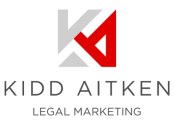The United States Intellectual Property Enforcement Coordinator Victoria Espinel recently blogged about a new effort to combat online piracy of intellectual property. The broad-based effort attempts to leverage the participation of several large internet/publishing companies (Google, Yahoo, Microsoft, AOL and Condé Nast), advertising networks (24/7 Media, Adtegrity) and the Interactive Advertising Bureau. The parties have agreed to voluntarily adopt a set of best practices to remove advertising from websites that are primarily engaged in copyright piracy (movies, video games, music, books, etc.) or selling counterfeit goods.
In addition to efforts by companies to combat a similar problem using the Copyright Alert System, which we have previously covered, the current agreement takes aim at shutting down the profitability (and it is hoped, the major incentive) of these piracy websites to attenuate their proliferation.
The parties have agreed to implement these procedures and establish a system whereby a rights holder will send an initial informal complaint to one of the participating ad networks alleging that the website at issue is “principally dedicated to” engaging in copyright piracy and/or counterfeiting goods. Further, the website must have no “substantially non-infringing uses.” Upon receipt of a complaint, the ad networks will investigate and determine whether to take action, which can range from requesting the website cease from engaging in the alleged activity, to an embargo on advertisements placed by that ad network on the website until such time as the alleged violations are removed, or ultimately, removing the website from the ad network altogether. While not required to, the ad network may also consider any evidence provided by the website owner that it is either not principally dedicated to counterfeiting or copyright piracy, or has substantial non-infringing uses. Any such “counter notice” should include the content prescribed in the Digital Millennium Copyright Act (17 U.S.C. §512(g)(3)). In addition, the participating ad networks will be certified by the Interactive Advertising Bureau’s Networks and Exchanges Quality Assurance Guidelines.
It is important to note that the burden to initiate the process is squarely on the rights holder, the guidelines explicitly noting that (i) there is no burden on the ad networks to police or actively monitor the websites on which their ads are placed; and (ii) by participating in this program, the ad networks do not prejudice their ability to maintain any “safe harbor” status they may otherwise be entitled to.
These best practices certainly have the critical mass to succeed. The critical question, however, will be the quality of the analysis by the ad networks in response to allegations of piracy or counterfeiting, and the efficacy of this avenue of redress as perceived by the rights holders. Regardless, this agreement, which may be refined going forward, is another step towards alleviating some of the pressure search engines have been under recently to take more proactive steps toward protecting intellectual property.



 />i
/>i

